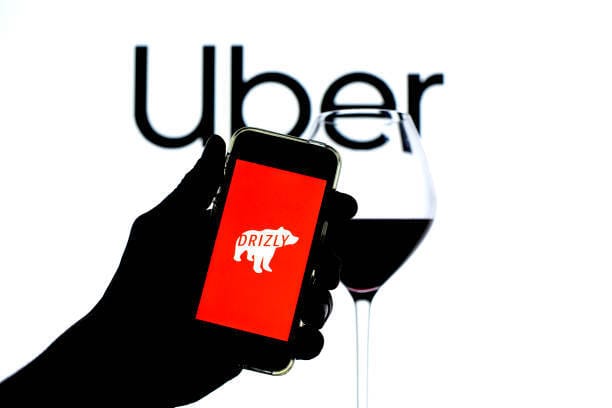US Affairs
US Steel was bought by a foreign company… should we be concerned?

AI-Generated Image via Bing Image Generator
One of American industry’s largest producers was bought by a foreign entity. Why should we be worried? US Steel is one of the worlds most historic corporations, as it was once the biggest company in the world, fueled the 20th century economic boom, supplied the US and allies with planes, tanks, etc. during WWII, and more. And now they’re owned by a Japanese company.
While Japan is now a strong US ally (unlike WWII), some fear that if a conflict erupts, countries might hoard resources, and the lack of US companies that can produce steel at scale for the military would be an issue.
US Steel isn’t the powerhouse it used to be and its once-dominant era can explain why many weren’t pleased to hear Japan’s Nippon Steel bought the company for $14.1 billion last month. While investors praised the potential acquisition, others had an opposite sentiment. Even bipartisan calls have been made to kill the deal:
Several members of Congress on each side, including senators Chris Deluzio (D-PA) and J.D. Vance (R-OH), called on the Biden administration to block the deal. They cite job security among Americans and supply chain concerns that are vital to national security as concerns while the foreign company takes control of the steelmaker.
United Steelworkers (USW), the union representing US Steel employees, complained it wasn’t notified about the deal, a violation of its current labor contract.
National Economic Advisor Lael Brainard said it deserves “serious scrutiny.”
The Committee on Foreign Investment in the United States (CFIUS), led by Treasury Secretary Janet Yellen, will most likely get the last word in approving the sale and is reportedly already looking into it.
What are critics of the deal saying?
While Nippon agreed to keep the company’s HQ in Pittsburgh and honor USW’s current contract with the company, the union still hasn’t fully bought the acquisition.
The USW says Nippon hasn’t directly committed to keeping workers employed or maintaining retiree benefits in the long term.
It also touched on examples of hostile behavior toward organized labor at a Nippon joint venture in Alabama.
Looking through a more political lense, America’s manufacturing sector will be a hot topic with the coming presidential election. Though the US has been surpassed in steel production by China, Japan, and India for a long while, but the industry will still remain influential in swing states like Ohio and Pennsylvania.
Texas’s power grid was put to the test with the recent cold surge

Beth Garza / CBS News
As most of the US is dealing with an arctic freeze, Texans are hoping its new and improved power grid can withstand the cold. With bitter cold sweeping across the US (unless you live in sunny Florida), much of the nation has prepared for the worst, including Texas.
The state’s grid operator, the Electric Reliability Council of Texas (better known as ERCOT), has fortified its operations since the massive power blackouts caused by winter storms in 2021. Some of the changes they’ve made:
The state has increased its battery storage by nearly triple.
They’ve increased solar and wind power production.
Winterized electric power plants.
Experts told the Washington Post these efforts should keep the grid online even during periods of heightened demand.
Last week, Texas Governor Greg Abbott said that their power generators have “never been as prepared for a winter event as they are today.” Still, ERCOT urged Texans to conserve energy throughout the week (especially in the mornings) to help prevent potential blackouts since the grid is most vulnerable between 7am–8am, when people wake up and start using electricity.
How about the rest of the nation?
Nearly 80% of the US is seeing bitter cold this week, with typically mild cities like Memphis, Dallas, and Nashville facing at least three days of below-freezing temperatures. Watch out for canceled flights (there have been more than 2,100 nixed so far), dangerous road travel, and absolutely freezing windchill (parts of Montana saw temps as low as -51 F earlier this week).
Wait, a bipartisan tax policy that will help everyone?

AI-Generated Image via Bing Image Generator
It’s enough to have both sides to getting along, but for something that benefits everyone? Sign me up. I’m trying not to jinx it, but we might have Congress agree on something. Someone pinch me.
A House Republican and a Senate Democrat who each chair important committees announced yesterday that they’ve come to an agreement on a $78 billion plan that would expand the current version of the child tax credit and resuscitate tax breaks for American businesses through 2025.
What exactly is in the potential bill?
Something for the Left: The bill would help lower-income families get more refundable child tax credit, even if it exceeds their tax bill. As it stands, many lower-income families aren’t able to claim the $2,000 per child credit, and the new policy would expand those efforts.
The Center on Budget and Policy Priorities (which leans left) said the proposed tax credit could lift 400,000 children above the poverty line in the first year of the program.
Something for the Right: It includes $33 billion in tax breaks for businesses (that they can also take retroactively) related to costs for interest payments and research and development.
And for both: The whole bill would be paid off by ending a fraud-ridden Employee Retention Credit program, which both sides seem keen on sunsetting.
But, there is still a bit to go before it’s passed. Lawmakers are hoping to pass the deal before tax season starts on January 29, but that would require shooting it through both the House and Senate pretty rapidly. And as we all know, the parties have a rough track record working together these days, and legislation doesn’t exactly get passed very quickly.
Business
JetBlue—Spirit merger called off by judge

Photo by Joe Raedle / AFP via Getty Images
After over a decade of airline cohesion… it might just stay that way. A federal judge ruled yesterday that JetBlue cannot acquire Spirit Airlines, marking the end of a deal that would have shaken up the airline industry.
Judge William Young/Les Mis fan sided with the Justice Department, which opposed the merger, saying it would harm customers by eliminating a low-cost travel option.
The almost $4 billion deal was set to make JetBlue and Spirit the fifth largest airline in the US behind Delta, American, United, and Southwest. JetBlue and Spirit argued that the merger would be the only way for them to compete with the Big Four airlines.
In the last 64 years, four of the biggest carriers (Delta, American, United, and Southwest) have collectively acquired 36 other airlines. Those four airlines control two-thirds of domestic air travel, according to the Bureau of Transportation Statistics.
Antitrust regulators are celebrating
The ruling is a landmark victory for the Justice Department, which has had its eyes on the airline industry for the last few years. Although the DOJ under President Biden hasn’t had much success taking down Big Tech, it has fared better against airlines. Last year, it forced JetBlue to dismantle its Northeast Alliance partnership with American Airlines.
However, many are looking at 2024 to be the year of the merger, and this isn’t exactly a promising start. Tuesday’s decision doesn’t help those hoping the proposed Hawaiian Airlines–Alaska Airlines merger will go through, as experts predict the DOJ may block that deal, too.
As for the future, JetBlue and Spirit issued a statement saying that they both disagreed with the ruling and are currently evaluating next steps. Spirit’s stock plummeted when the news dropped, while JetBlue’s was up.
Uber is shutting down its alcohol delivery platform

Photo Illustration by Thiago Prudêncio / SOPA Images / LightRocket via Getty Images
Those who are too lazy to get up and buy their own alcohol must be taking this one pretty hard. Uber said Tuesday that it plans to shut down the alcohol delivery platform Drizly by March.
The ride-hailing app bought the company for $1.1 billion three years ago, when delivery services were at their peak (allowing you to drink at home guilt-free). But, growth in the delivery market has now halted and after Drizly got in trouble with regulators over its user data management…
Uber SVP of Delivery Pierre-Dimitri Gore-Coty said the company is instead prioritizing Uber Eats and focusing on “helping consumers get almost anything—from food to groceries to alcohol—all on a single app.”
Drizly laid off 100 employees last year, while some of its offerings have already been integrated into Uber Eats.
Maybe they should go sober
After Uber got massively popular, it was revealed that a data breach affecting 2.5 million of Drizly’s users back in 2020 was caused by a security vulnerability that the company and its former CEO were aware of but neglected.
That prompted the Federal Trade Commission to limit the kinds of user data that Drizly could collect and store, which might’ve hindered its ability to profit from selling data it would’ve been able to collect.
They have not faced this alone, however. Uber payed a hefty price for a subsidiary it abandoned soon after, and they aren’t the only one’s who have done so. Google recently cut the product team at Fitbit (which it acquired for $2.1 billion in 2021), as it focuses on developing its own Pixel Watch.
Hey everyone,
We recently put together a FREE E-book to help you navigate the complex media landscape. Step by step, we outline how you can take control of your consumption of information in an objective and rational manner.
If this sounds like something you may like, click the link below for no cost.
We also offer a 75-page full version of the E-book that offers an even more comprehensive look into how you can take advantage of the information around us, for only $2.50.
Grab Bag
It’s been a tough year for dogs

AI-Generated Image via Bing Image Generator
2023 took a toll on our canine friends, in more ways than one. Between a surge in adoptions during the pandemic and back-to-work mandates, doggos were an unsuspecting victim last year.
Many who adopted dogs during COVID now don’t have the time for them, leading to a crisis in pet shelters.
Bloomberg reported that the number of stray dogs in US shelters has increased by 22% since 2021, per data from the Shelter Animals Count database. And it’s not just older dogs losing their homes, shelters are saying puppies are being left behind too.
One in 10 pet owners rehomed their dogs, and another 11% thought about it.
And even for those with a steady home situation, the house was emptier than usual… around 2.5 million Americans returned to the office in 2023.
Worst of all, canine deaths in shelters are up 27% from last year and 78% from 2021 as they deal with overcrowding. Experts attribute the crisis to return-to-office mandates, the rising costs of petcare, and the end of pandemic-era eviction restrictions that are allowing landlords to enforce pet policies.
While its sad, 2024 may offer a solution
There have been quite a few innovations in the doggy tech sector (if you want to call it that), that may help improve your pups home life while you’re at the office.
Ogmen Robotics recently showed off ORo, its robotic dog assistant, at CES. ORo can autonomously move around a home, throw a ball, and its robotic face can display videos of a pet’s owner. It’ll run you $799, and it goes on sale in April.
Another CES hit was Minitailz, a $99 smart collar from Invoxia with live GPS tracking and heart-health scans. It comes with an app that has an AI chatbot which creates personalized pet reports and flags your pet’s health issues.
Dog food is also becoming increasingly techy, as pet food manufacturer PawCo Foods “leverages AI to enhance nutrition and palatability” for its plant-based meat.
So, we have plenty of options to keep our pets happy and healthy this year, though it might cost you a pretty penny (at least for the dog assistant).
Workplace wellness initiatives aren’t doing much

AI-Generated Image via Bing Image Generator
Offices have tried helping their employees get back in the groove of things, but studies show workplace wellness programs are lacking. According to research from Oxford, workplace wellness initiatives aren’t working as well as anticipated.
The study was published earlier this month, and assessed employee well-being at more than 200 UK organizations in 2017 and 2018.
Workers who used their companies’ mental health benefits didn’t feel any better than coworkers who didn’t take advantage of the resources, with the exception of volunteering, which appeared to boost well-being.
Participating in resilience and stress-reduction training may even have a negative impact, possibly by compounding people’s anxiety if a service they assume will work doesn’t help them.
Some don’t agree with the results, though. Other research says that wellness apps aren’t beneficial, but the positive effects of mindfulness training is pretty concrete.
Recent research has shown that the mental healthcare platform Spring Health helped workers manage their depression and miss fewer days of work, leading to more productivity.
The pandemic showed that employers need to start prioritizing employee welfare, which boosted the corporate wellness industry from $8 billion in 2016 to more than $50 billion now, according to Grand View Research.
Fast Facts

GIF via GIPHY
Travel Time: Have a look at the most popular travel trends of 2024.
Plane Precautions: Boeing suffered another embarrassment Wednesday when the 737 meant to shuttle US Secretary of State Antony Blinken home from Davos had a critical failure, leaving him stranded until he changed planes.
Costco Quiz: Enjoy Wordle? Try Costcodle, it’s the same concept except you guess Costco prices.
British Business: The Royals are having a fun time: The Princess of Wales (better known as Kate Middleton) is in the hospital after a planned abdominal surgery, and King Charles will undergo a procedure for an enlarged prostate next week
Wonderful Watch: TV’s 75 most impactful moments ever.
If you enjoyed our newsletter even a little bit, please don’t hesitate to share, it would mean a lot! 😄 Also, if you’d like more snippets and critical analysis of the media please follow our X (Twitter) down below!






